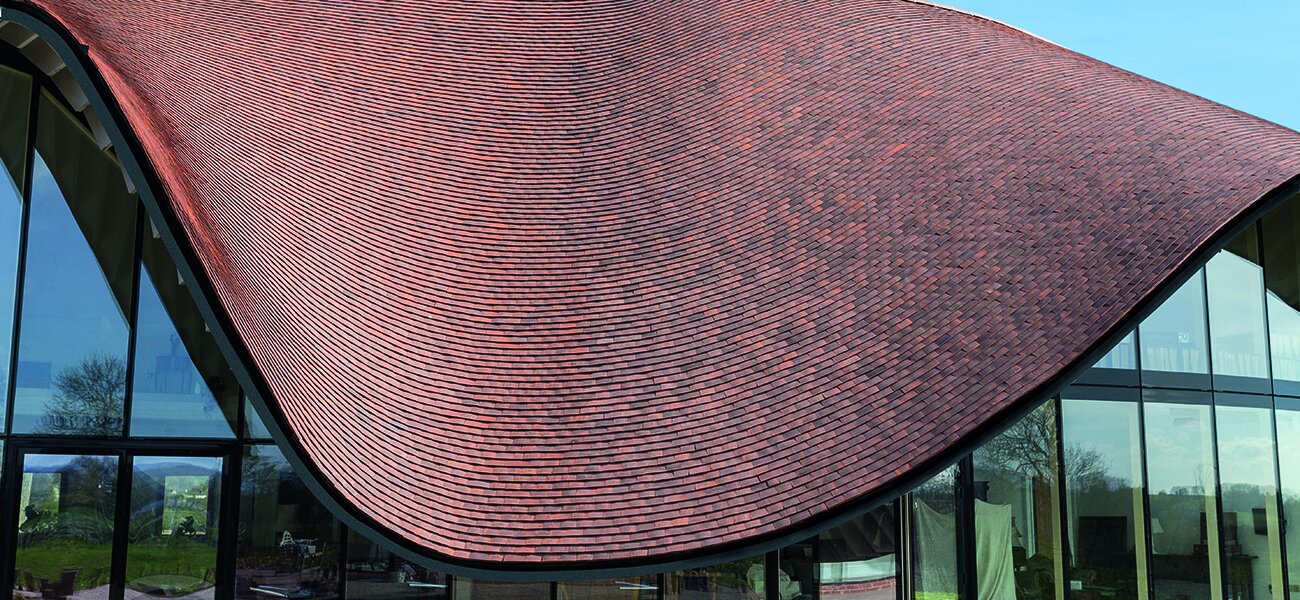
Creating a new unique digital experience for loyal customers.
Marley is the UK’s leading roofing tile manufacturer and invested in depth customer research to inform its product & service development.
Following the successful re-design and re-platforming of their website (launched in December 2018 by myself), I was asked to further develop their future digital roadmap. The first phase of the project was concerned with their specifier customer segment. The second phase of the redevelopment would focus on their existing merchant customer portal.
Approach.
Marley had undertaken a depth piece of research with 3rd party market research agency, CGA (www.cga.co.uk). The research was a mix of qualitative and quantitative research that was conducted with Marley’s existing merchant customer base. Although the research used a propriety research technique, I was able to use the scoring mechanism from the research agency to create a series of weighted job scores. These could be used in the design sprint to prioritise feature development.
Using job statement scores to inform a design sprint is a technique that I have found to be very successful. It helps the group make more informed decisions based on true customer insight. In order to create this new experience for Marley, I facilitated and ran a five day Google Ventures style design sprint with eight people from the Marley business and three employees from McCann.
Overlaying the customer research into the sprint allowed us to focus our solution and sketching on a very specific pain point that we believed would have the greatest impact to the customer.
A prototype was produced that focused on order fulfilment, and the modernisation of the procurement process within the roofing industry. This prototype was tested with Marley’s customers in a single day during face-to-face testing. A observation room was set up for the remainder of the sprint team to observe and take notes.
Post customer testing, the feedback was collated and amends were made to the prototype. I then created a set of job stories to accompany the sprint output. With a tested prototype and clear vision for a successful product, I conducted technical feasibility sessions with Marley and their 3rd party technical solution partners. Doing this enabled me to breakdown the delivery of the prototype into achievable segments as certain aspects were unachievable for a period of time due to external technical factors.
Customer map from design sprint, day 1.
1st iteration of storyboard from design sprint, day 3.
Outcome.
The initial web project for Marley was launched in December 2018, re-platformed onto Sitecore v9 and was delivered in line with the launch of a new brand.
The second phase of the project was unachievable in full due to technical limitations but a reduced capacity version was launched to merchant customers towards the end of 2019. The final elements are now technically possible and the plan is to launch the final elements in 2020.
The website and its functions have been well-received by Marley’s customers and it has enabled them to showcase the new brand. They have seen an uplift in sample orders and enquiries and have also received positive feedback from key merchants on the new account functionality.
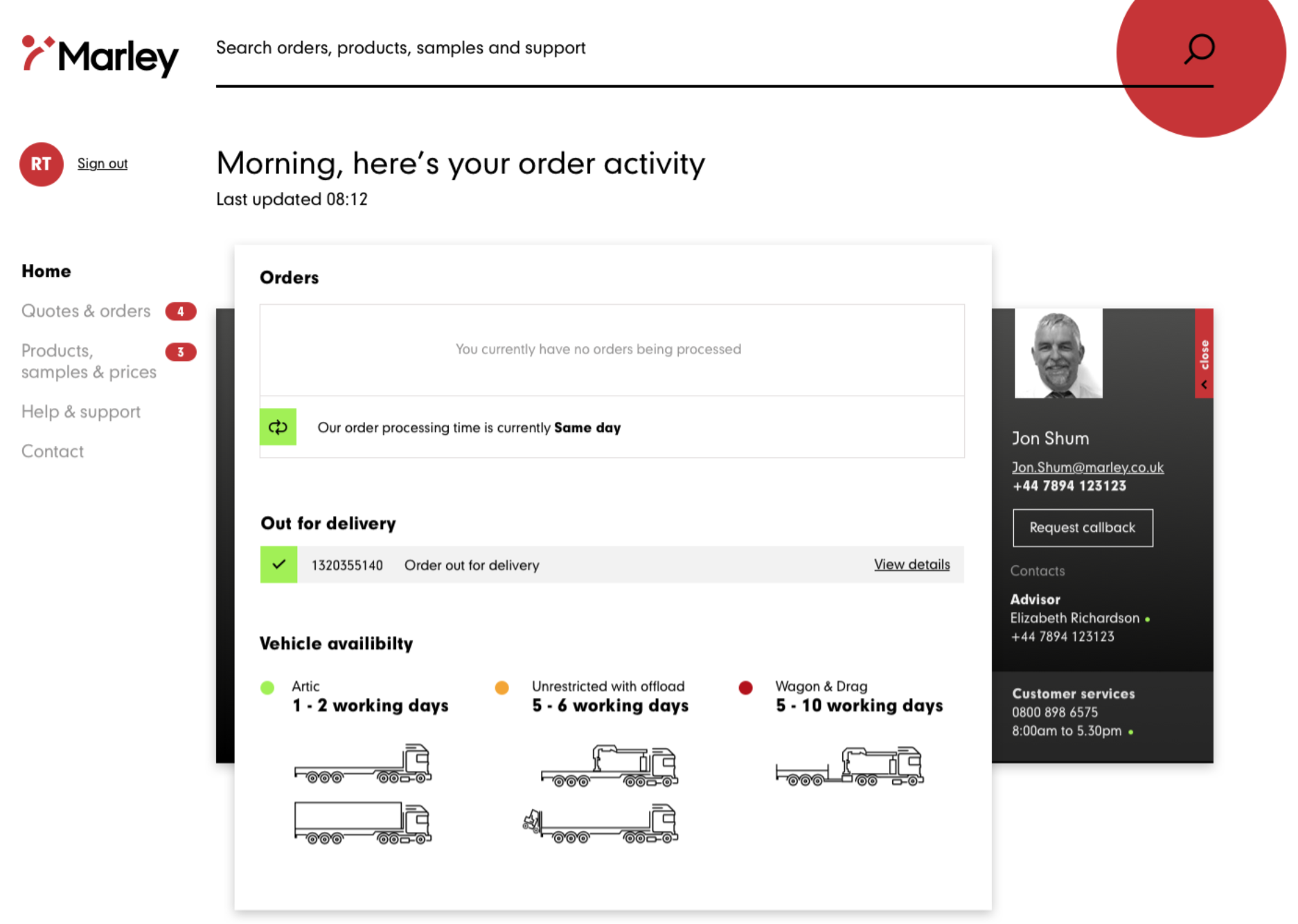
Prototype Landing Page
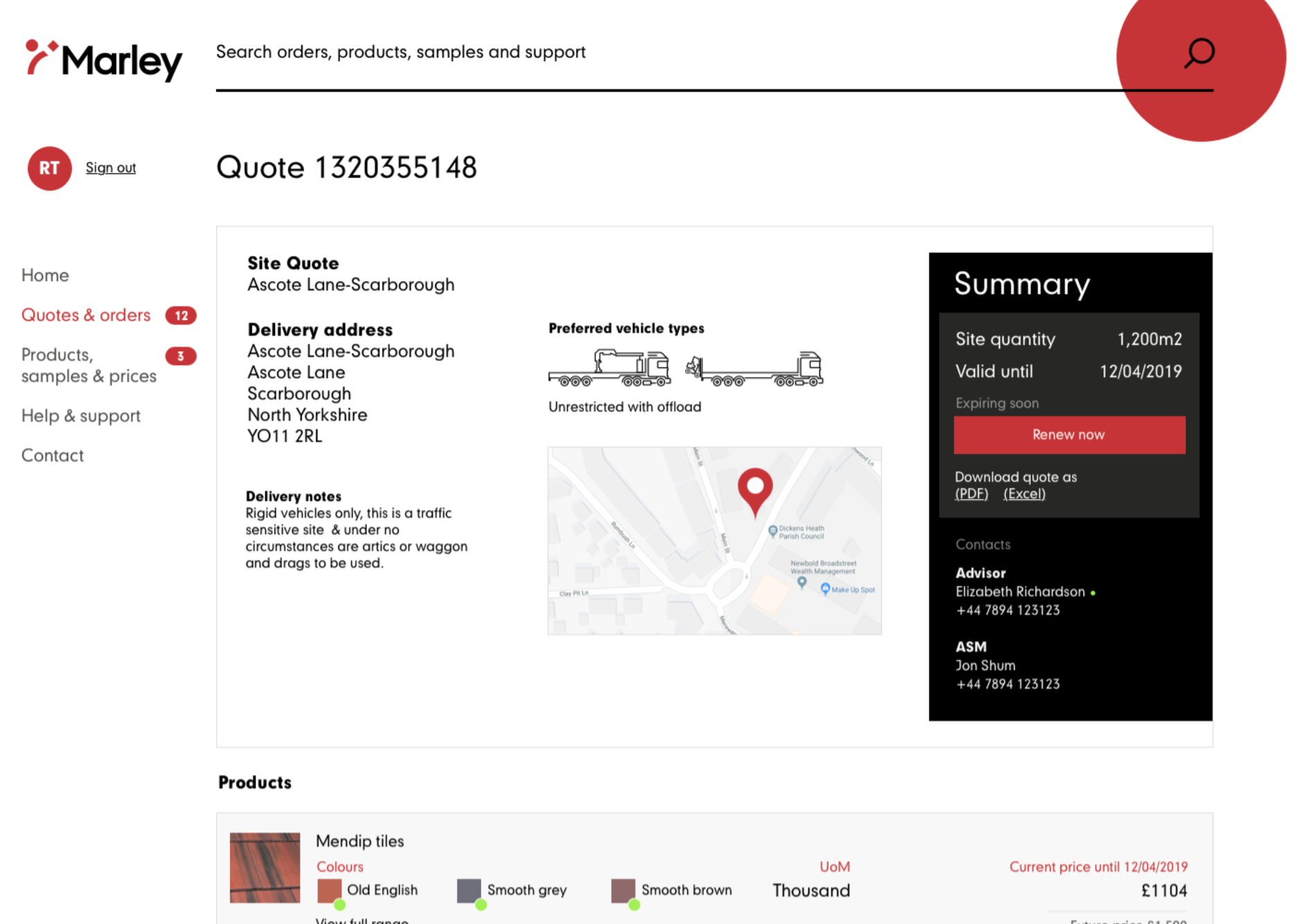
Quotation
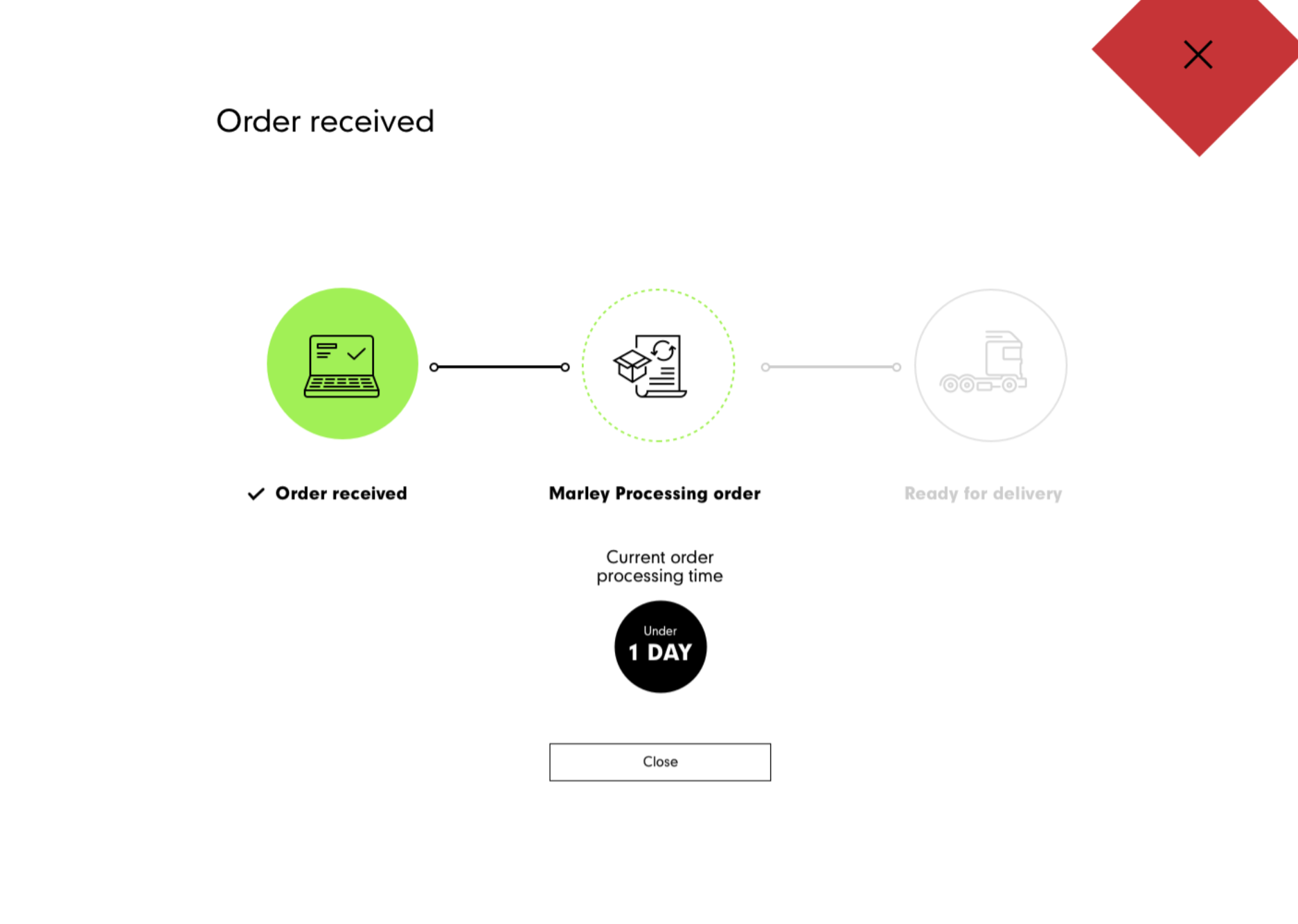
Processing an Order
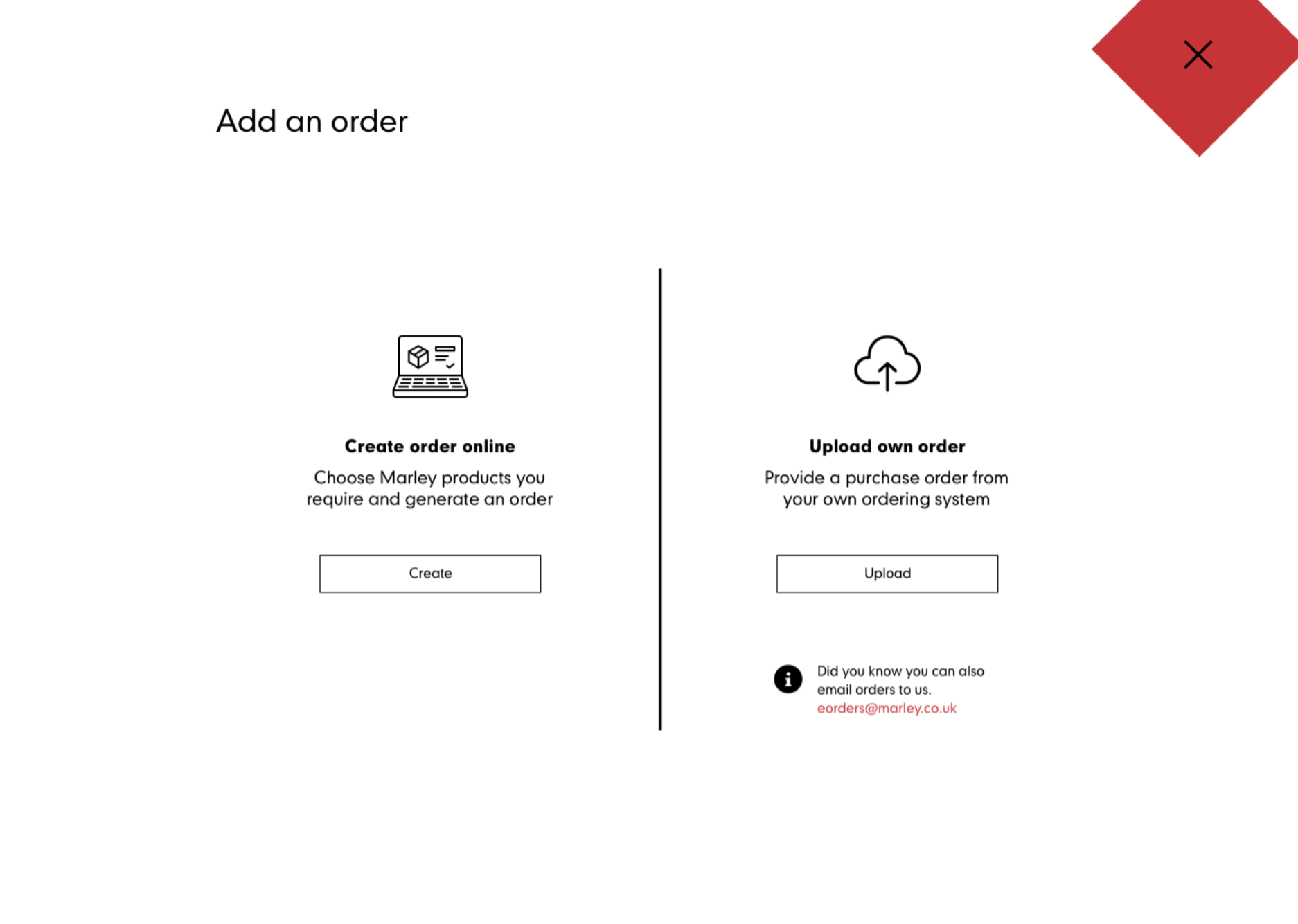
Creating an Order
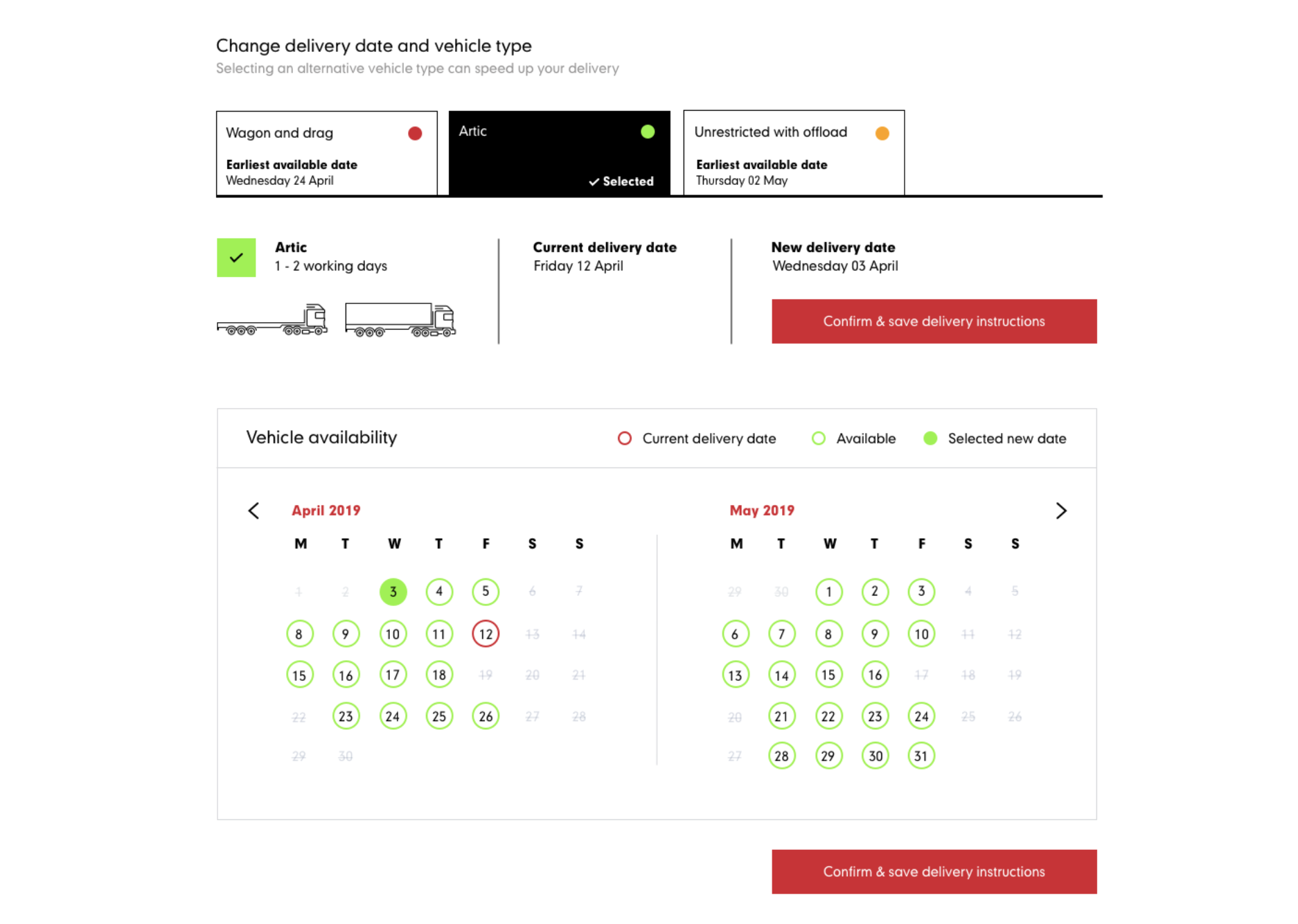
Selecting a Delivery Date
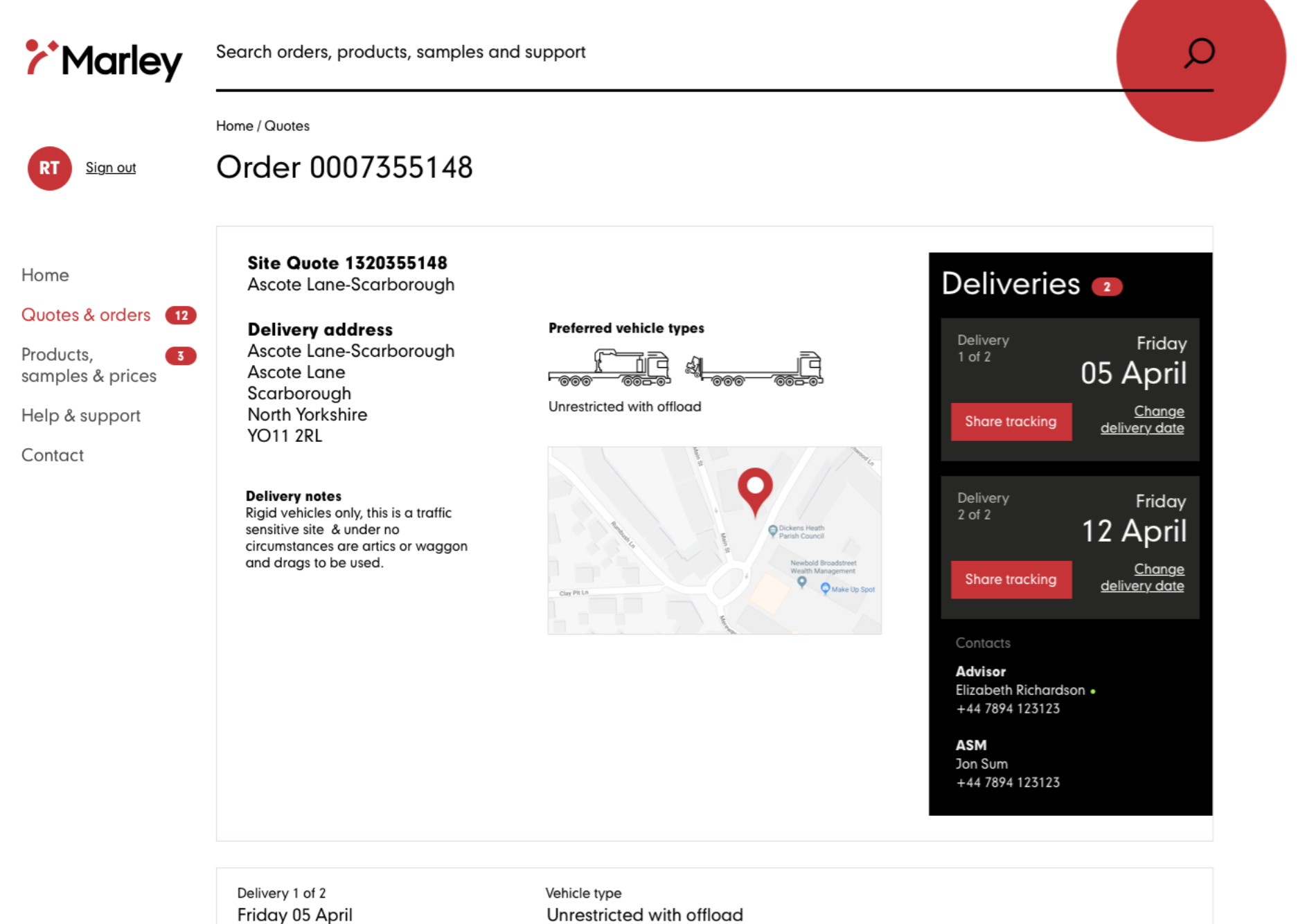
Order Details
Methods & Tools.
The information below details a selection of the methodologies, techniques and tools used to deliver the project.
Methods.
Desk research
Jobs to be done prioritisation
Google Ventures design sprint (5 day)
Prototyping
Face to face user testing
Technical feasibility assessment

